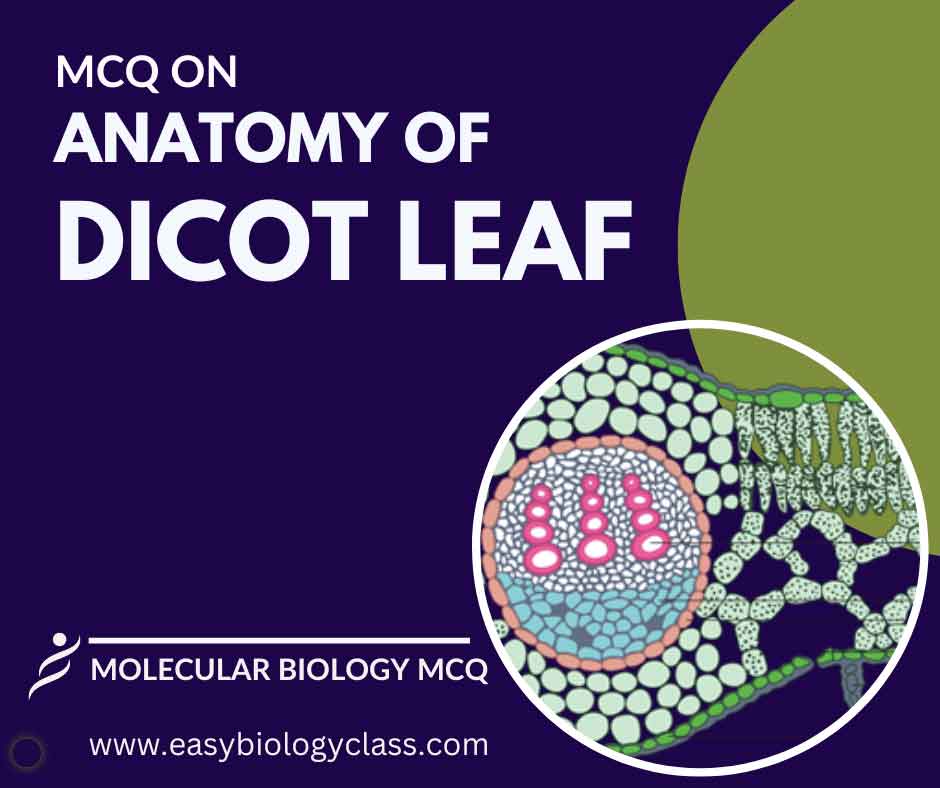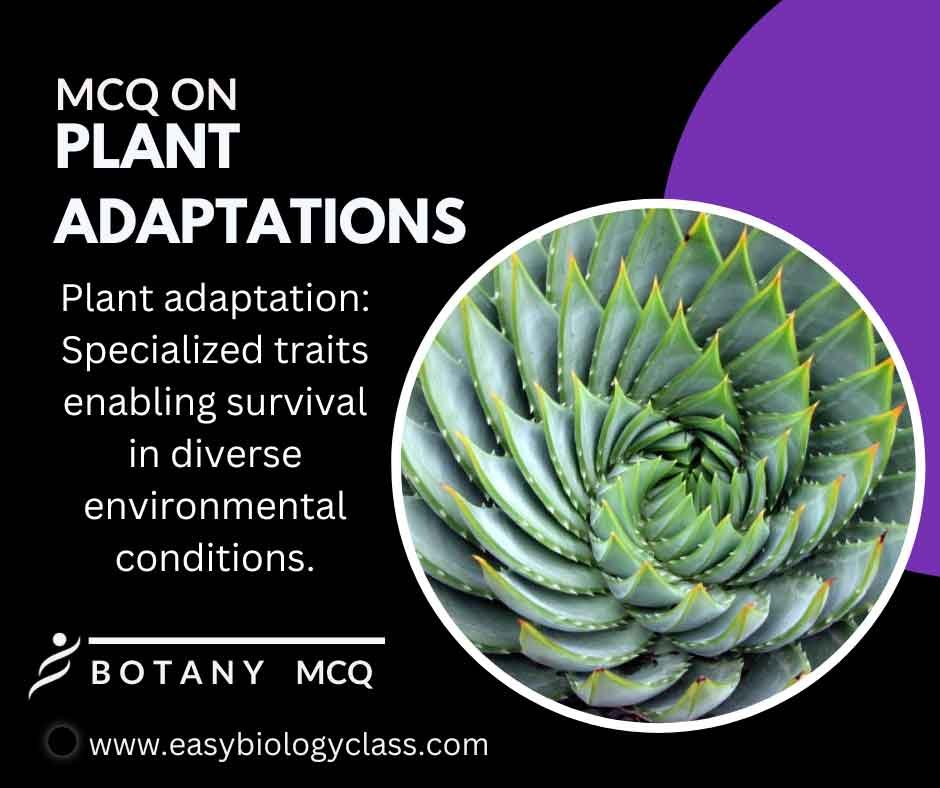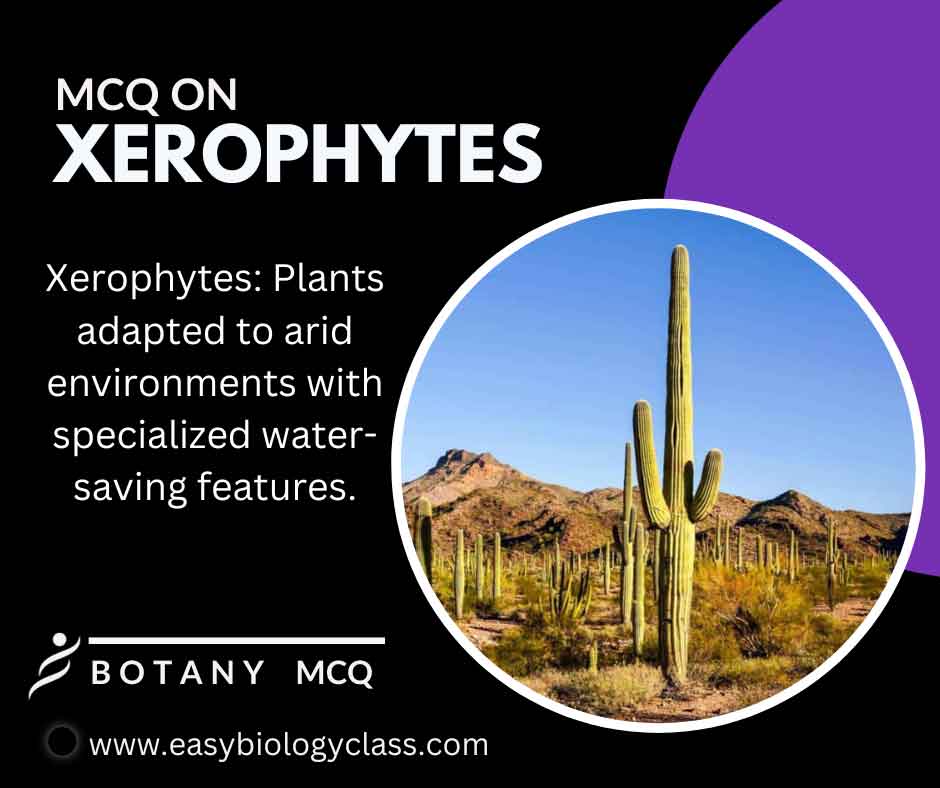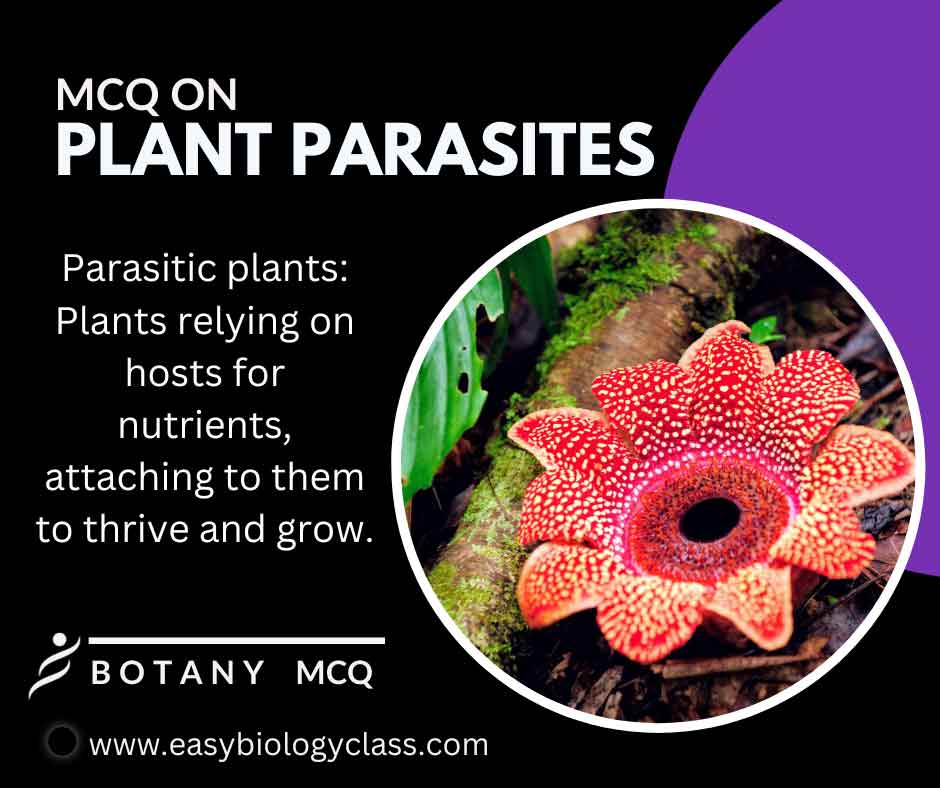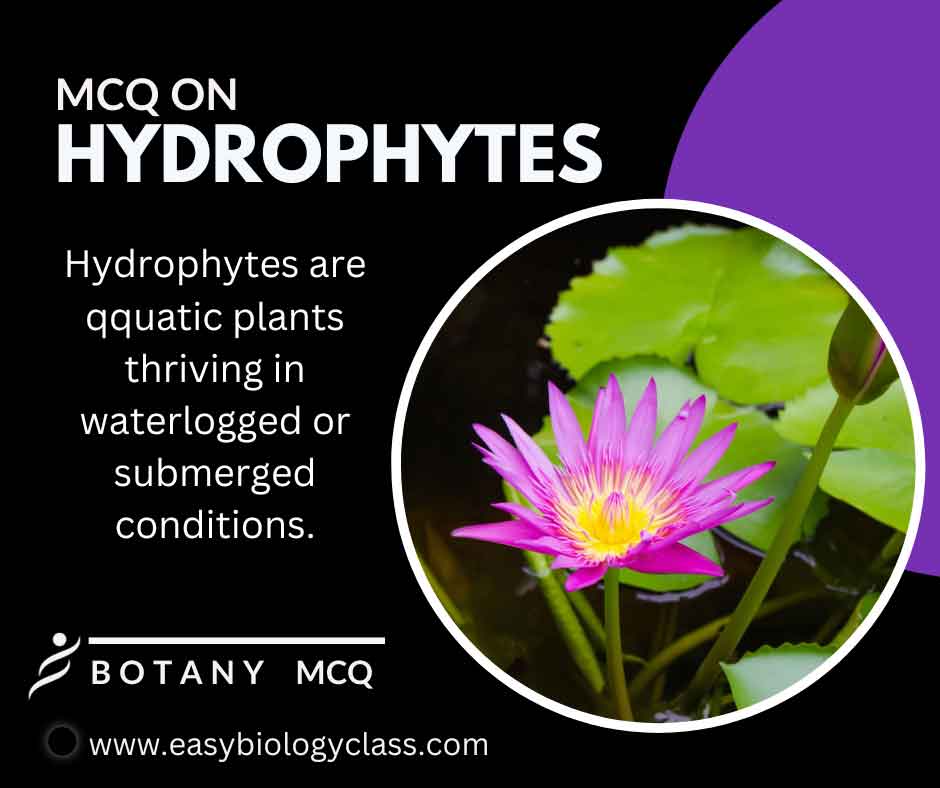A dicot leaf typically exhibits a broad, flattened shape with a reticulate venation pattern. Its structure includes an epidermis, mesophyll with palisade and spongy layers, vascular bundles arranged in a ring, and stomata for gas exchange on the lower epidermis. This is an MCQ on Anatomy of Dicot Leaf. Botany […]
Continue ReadingTag Archives: Plant Anatomy
MCQ on Plant Adaptations: Flora Thriving in Environments
Plant adaptations are specialized features or behaviors that enable plants to survive and thrive in specific environments. These adaptations include structural, physiological, or behavioral traits that help plants cope with challenges like extreme temperatures, limited water, or nutrient availability in their surroundings. This is an MCQ on Plant Adaptations and […]
Continue ReadingMCQ on Xerophytes: Plants Thriving in Arid Environments
Xerophytes are plants adapted to arid or dry environments, possessing specialized features to conserve water. They exhibit traits like reduced leaves, succulence, deep root systems, and waxy coatings to minimize water loss and thrive in low moisture conditions. This is an MCQ on Xerophytes: Adaptations with Examples. Botany Notes | […]
Continue ReadingMCQ on Parasitic Plants
Parasitic plants are organisms that rely on other plants (hosts) for nutrients, water, and support. They attach to their hosts and draw resources, often lacking chlorophyll. Examples include mistletoe and dodder, evolving diverse mechanisms to extract sustenance from their host plants. This is an MCQ on Parasitic Plants: Adaptations and […]
Continue ReadingMCQ on Hydrophytes: Plants Adapted to Aquatic Life
Hydrophytes are plants adapted to aquatic habitats, thriving in waterlogged or fully submerged conditions. They possess specialized features like air-filled tissues, floating leaves, or extensive root systems to obtain oxygen and nutrients, enabling growth in wet environments such as lakes, ponds, and marshes. This is an MCQ on Hydrophytes: Adaptations […]
Continue Reading
